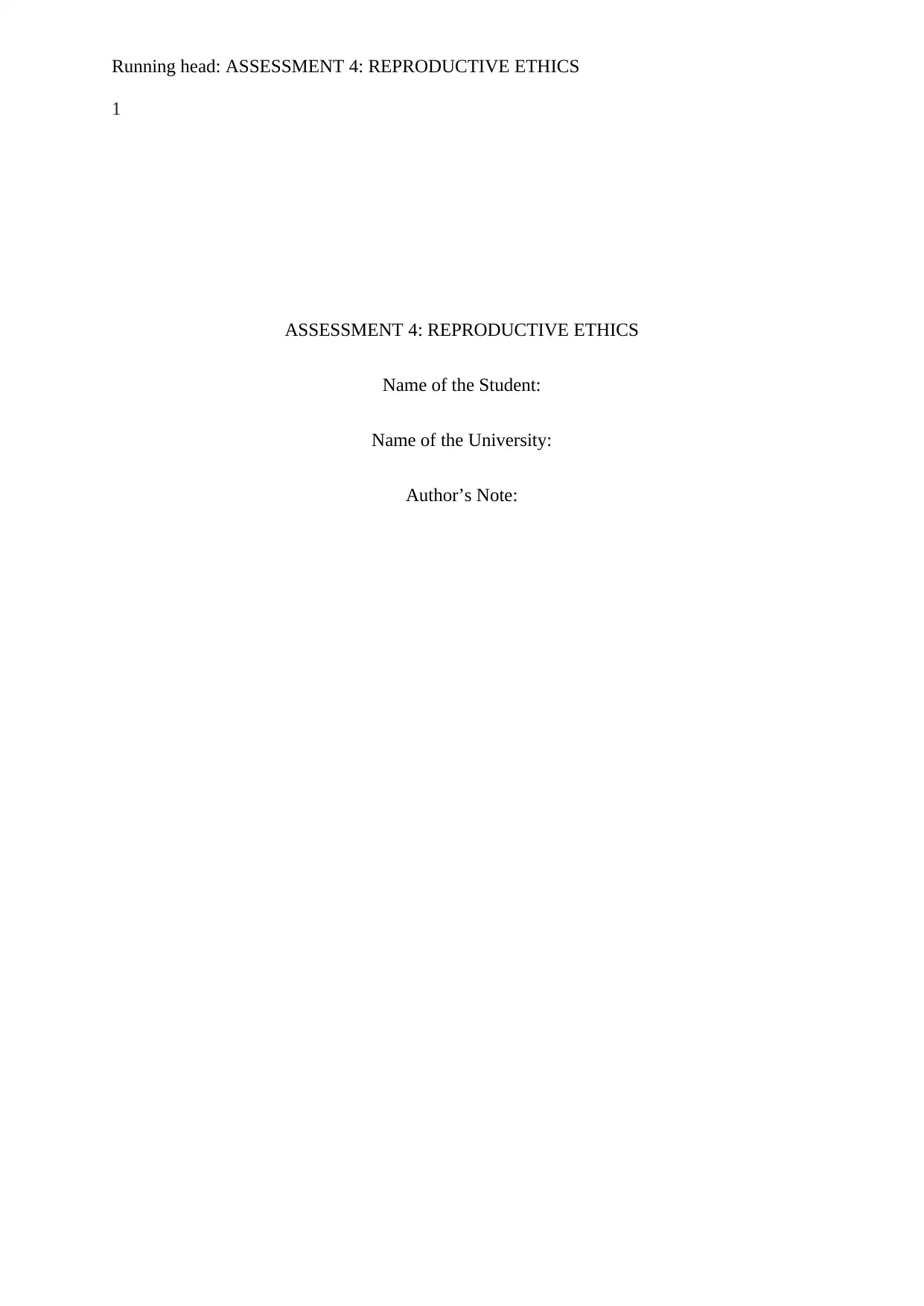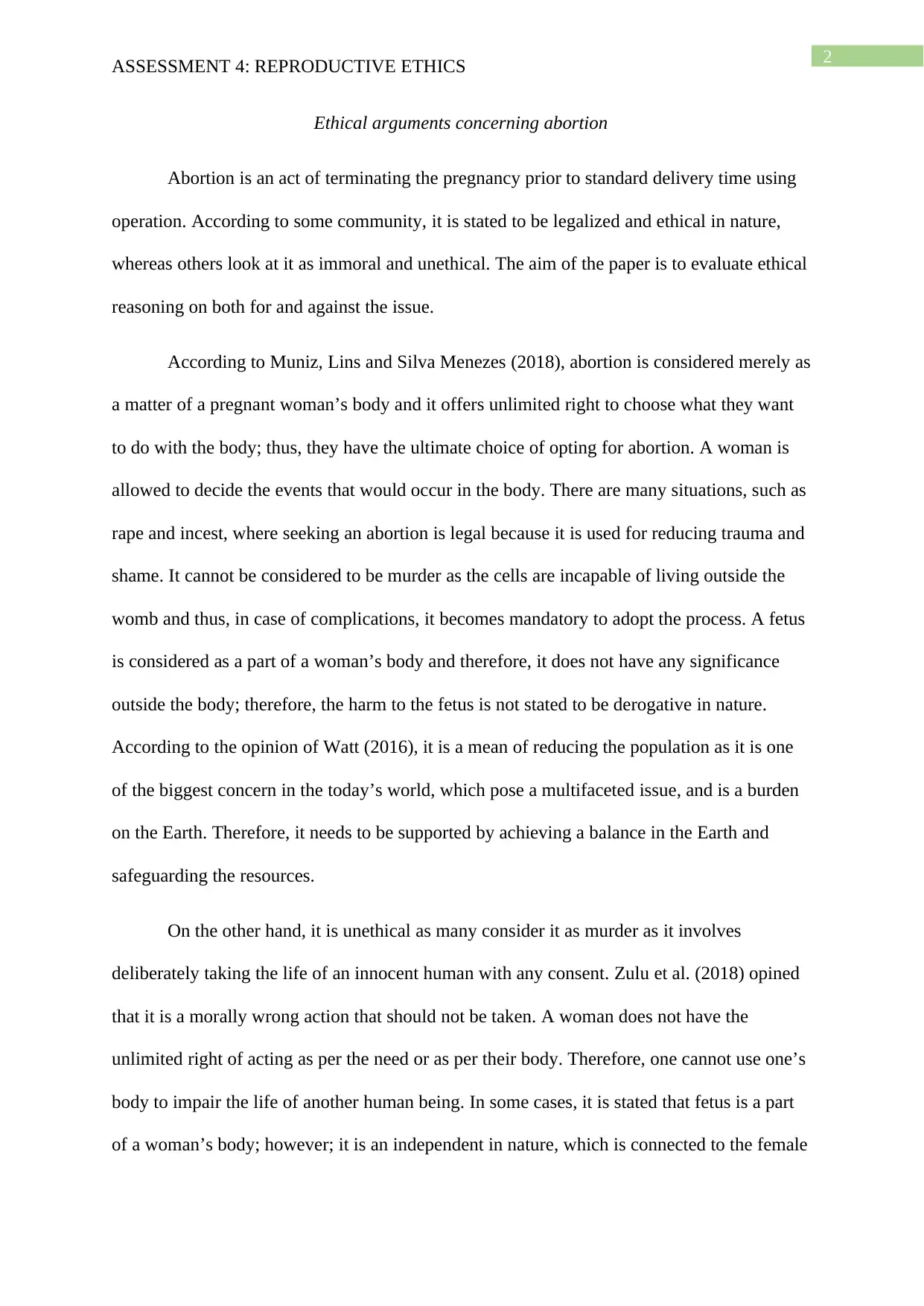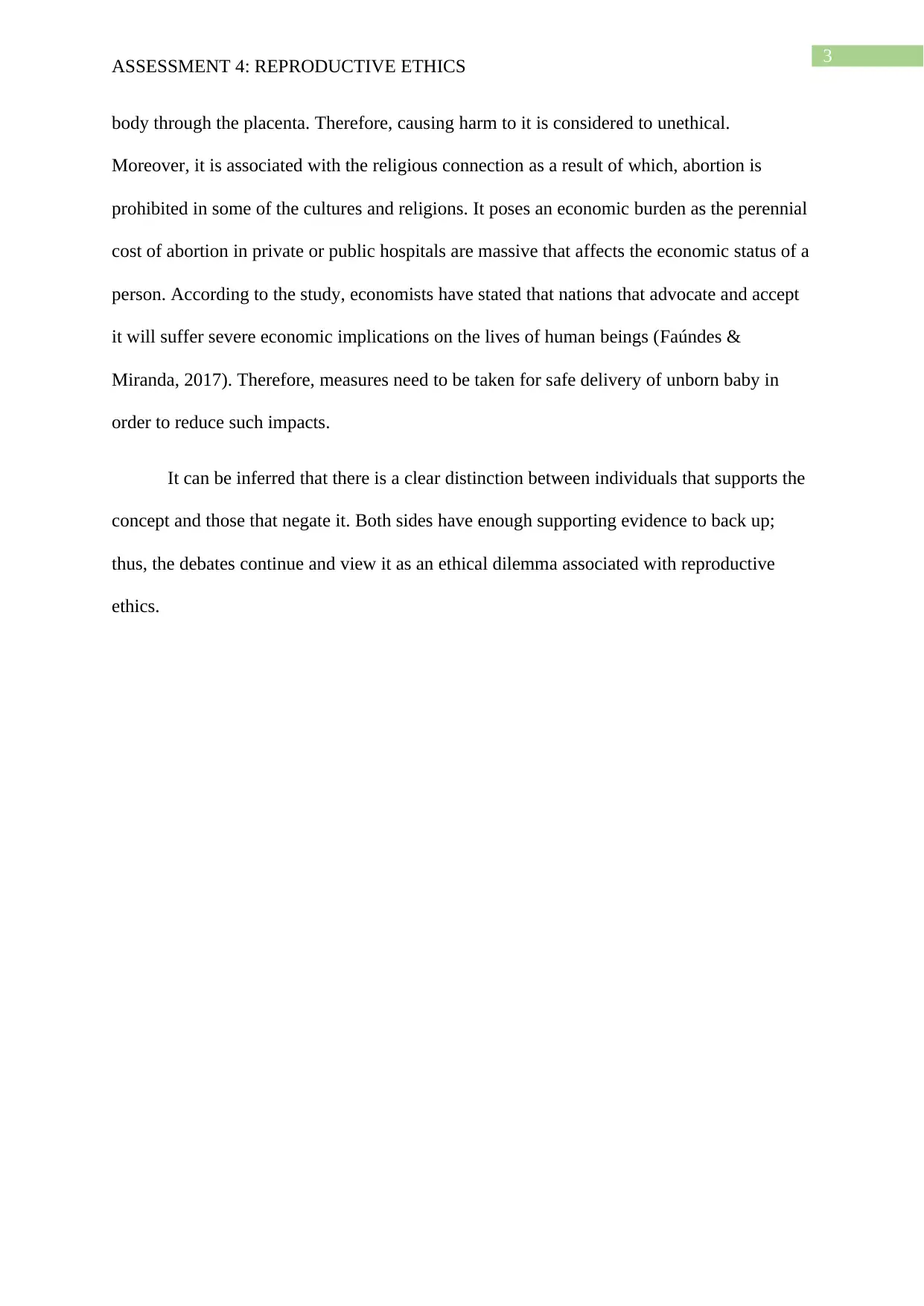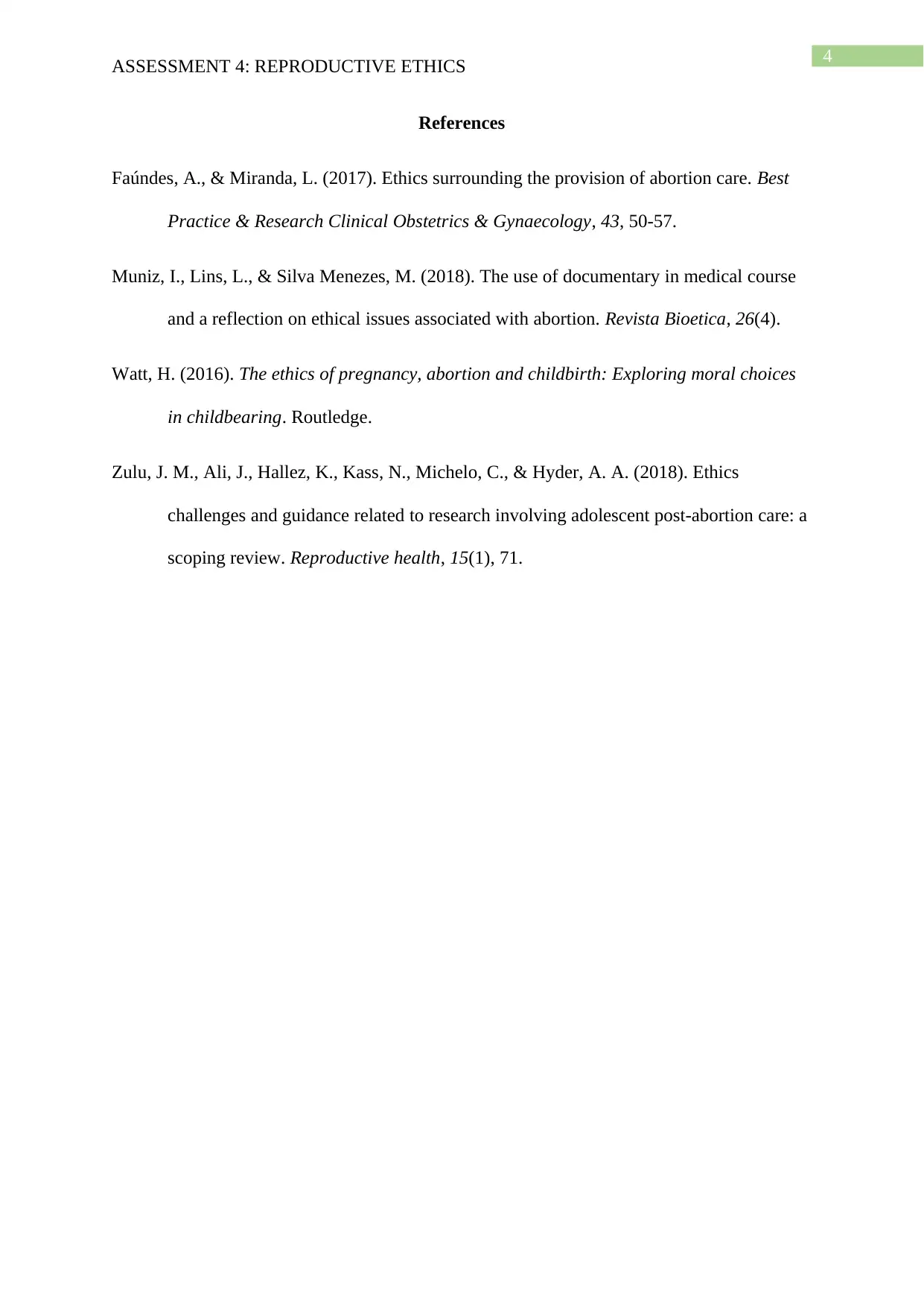Assessment 4: Reproductive Ethics - Abortion Ethical Evaluation
VerifiedAdded on 2022/08/08
|4
|791
|21
Essay
AI Summary
This paper, written for a course on Ethics in Health Care, evaluates the ethical arguments surrounding abortion. The student explores the core debate by examining arguments supporting the right to choose and those opposing abortion on moral grounds. It presents the viewpoints of different authors and analyzes the complexities of reproductive ethics. The paper discusses the perspectives of those who believe women have the right to choose what happens to their bodies and contrasts this with the view that abortion is morally wrong, considering the fetus's status and religious connections. The author references various academic sources to support the arguments, providing a comprehensive overview of the key issues in the abortion debate. The paper serves as an insightful analysis of the ethical dilemmas in reproductive health.
1 out of 4








![[object Object]](/_next/static/media/star-bottom.7253800d.svg)